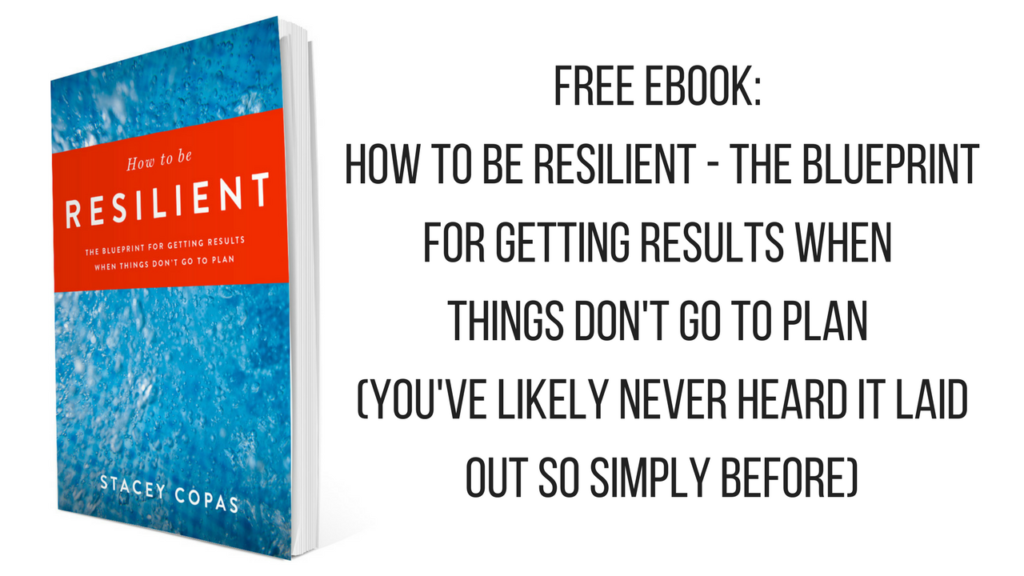
Resilience has become a keyword in leadership because of the exponential rate of change in the environment, in which leaders are expected not only to perform, but to do so excellently.
Despite the fact that all imaginable information is at our fingertips, we continue to make bad choices as a society – about our health, the way we communicate and build relationships.
There is a big difference between knowing something and actually using this knowledge to do good.
What do I think about companies’ so-called resilience programs?
They’re a great idea and they try to help, but they have a major disadvantage – they attempt to provide a quick-fix solution to issues that tend to run deep. Yoga at lunch time is not a resilience program! The word ‘resilience’ is becoming synonymous with ‘coping’, which isn’t going to help people improve their quality of life, engagement and interaction.
Why is resilience in the workplace so important?
Work environments where resilience is absent tend to be toxic, characterised by gossip, disrespect, unrest, discontent and a lack of connectivity between elements and people. In environments like these, people tend to lose motivation and become unproductive because they feel their contribution doesn’t matter.
Companies often make the mistake of developing short-term programs to deal with problems, and it’s their temporal limitations that make them less than effective. Learning is most effective when conducted over longer time frames, with lots of repetition guaranteeing sustainability. Innovative ways of learning are crucial to this end as well.
Leaders and managers at an organisation need to make themselves accessible to their employees and peers. Saying you’re accessible, however, doesn’t suffice. You need to communicate openly with people and be genuinely interested in what they have to say. If it seems to them like you aren’t, they will stop giving you feedback.
Be an active listener, promote involvement at the workplace and ask the right questions. Engage with your team informally at least once a week. Ask them what they are working on, what they find challenging, what hindrances they expect to come up against in the future. Ask them how you can best support them.
What is more, resilience programs need not be tailored by an academic or mental health expert to be successful. Much of my success in business comes from my own life experience and how I dealt with them. Programs that grow out of life experience can be tangible and practical, and often are, while academic-based ones are too focused on theory and difficult to implement in practice.
When I work with leaders, I ask them where they are now, where they want to be, and what obstacles they face. We then discuss how best to enhance the process of achieving their goals. The vast majority of my clients have problems stemming from inadequate time management and feelings of being overwhelmed, as well as taking responsibility.
Resilience can be developed. It is not something that you are either born with or aren’t, that you either have or you don’t. There’s a really simple process you need to follow when something goes wrong, and this is it:
- First of all, don’t see the occurrence as “something that went wrong”. It’s simply something unexpected, which in turn is an opportunity to be grateful for. Say “thanks”, and stop feeling bad about it.
- The second step is to always look for the lessons in the unexpected. It’s not something bad, it is an opportunity to change things for the better. Don’t see it as failure, but feedback.
- Finally, always try to share with other people. Sharing things with people is a good way to start seeing them in a different light, from the other person’s perspective. Always ask yourself what the best thing that happened to you today was. It’s a great way to learn to search for the positive things in life.
Stacey Copas, Author of “How To Be Resilient”, is the CEO of Academy Of Resilience and Australia’s Leading Keynote Speaker and Facilitator on Turning Adversity Into An Asset. She has worked with large organisations such as Telstra, CSIRO and SACA, helping their leaders be their best in challenging times. Stacey has also been featured in national media including ABC, Financial Review and The Australian for her insights on resilience in the workplace.

